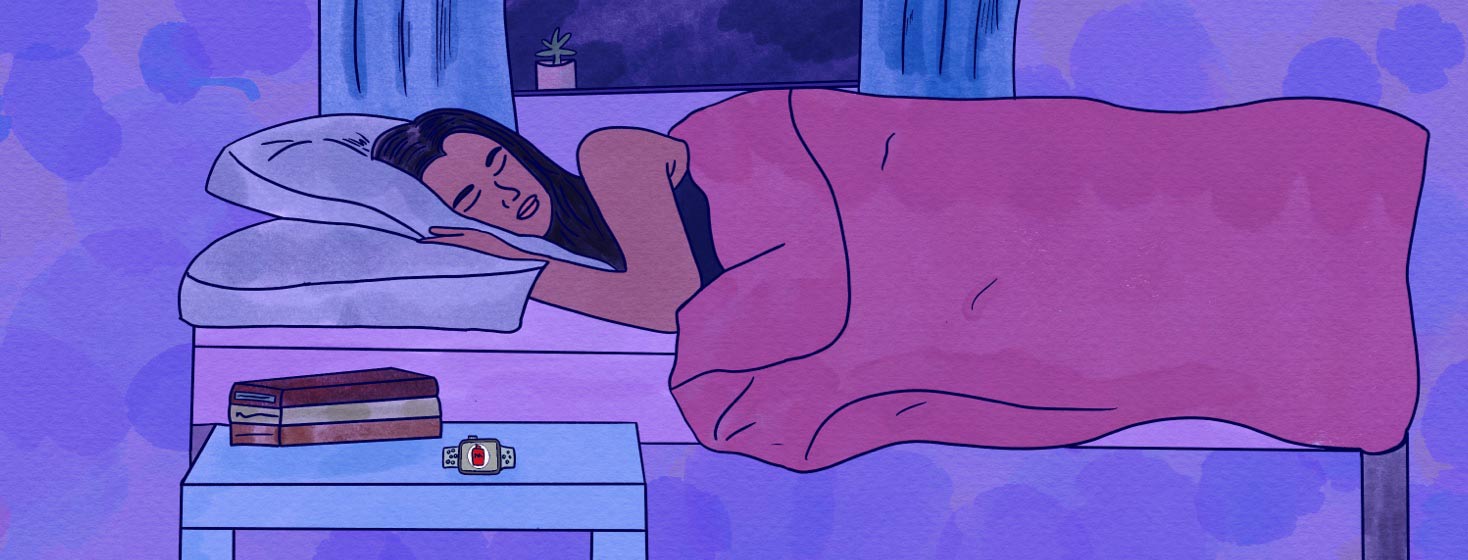Tracking Sleep? No, Thanks.
Fitbits and smartwatches have really taken off in the last few years. You can't turn a corner without seeing someone wearing one. They are so popular that even toy versions are being sold, complete with teeny tiny app icons and play versions of Zoom. Smart technology has truly invaded our days – and our nights.
I know many people who use their smart devices to track their sleep patterns. I have mulled it over many times, but this is one trend I just cannot get behind.
Why I choose not to track my sleep
For the most part, I am far from impulsive. Very few times in my life have I made snap decisions; I weigh options, consider all the alternatives, and usually put off making any decisions until I am absolutely forced into doing so.
I have been over the whole sleep tracker idea in my mind a hundred times, read others' accounts of their own insomnia journeys and how sleep trackers helped or hindered, and talked with friends who are trying out sleep mode on their own devices. I have come up with several reasons to skip it altogether.
1. Comfort
This may not seem like a big deal to most, but comfort is high on my list when trying to deal with insomnia. I am a creature of habit, and I have never slept with watches or bracelets. The simple physical presence of a watch on my wrist would interfere with my ability to feel tucked in and really ready to sleep. This alone was not enough to talk me out of wearing one, but it certainly contributed to my decision.
2. The 'Are we there yet?' syndrome
Not unlike a child in the backseat on a long car trip, I wouldn't be able to stand the suspense of knowing how things were going. The sheer anxiety of wanting to know how I am doing would drive me to stay awake just to check the darn thing. I can picture myself lying in bed with one eye open, trying to catch a glimpse of my progress – defeating every purpose I had in mind for the watch in the first place.
3. Creating more worry
While I know there are plenty of ways to use the information gained from tracking sleep, I know myself and my tendencies. Discovering in black and white exactly how little I really do rest would be unnerving for me. I am a born worrier and can't help but see the negative side to seeing how much sleep I lack each night. Some things are better left a mystery, and this might be a great candidate.
4. Separation of day and night
This reason might be a bit difficult to follow but bear with me. I have an overwhelming need to feel that my day has ended, you know? The workday and anything associated with it needs to be behind me when it is time to rest. I watch a clock and check my watch constantly throughout the day in order to stay on schedule at school; when it's time to sleep, I want anything that feels remotely like a workday to be out of sight, out of mind – and off my wrist.
Do what works for you
Kudos to all those who find sleep trackers beneficial. I am all for anything that decreases insomnia and brings some peace into the lives of anyone struggling to find sleep and get some genuine rest. I will, however, leave the sleep tracking to someone else. After all, I have a lengthy list of other options I am willing to try in the meantime.
Are you having luck with a sleep tracker? Have you been able to use your data to improve your sleep? Tell us about your experience in the comments.

Join the conversation